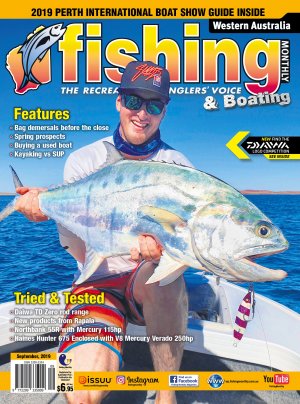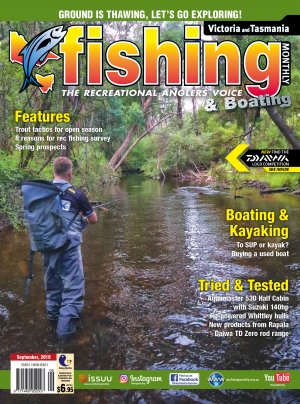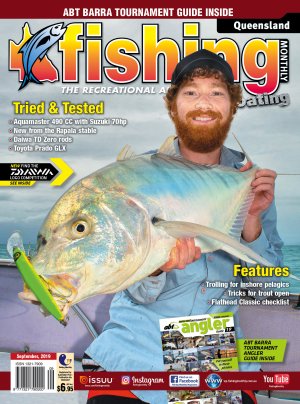The first days of summer will be issuing in a new form of heat even more intense and foreboding than the previous three months of spring. But for all those who can hack a windless, overcast day up a tropical creek where the only chance of a cool off is the sweat running down your back, the rewards can be fantastic.
Supercharged creek and estuary systems will follow from the many spawning aggregations of fish, crustaceans and molluscs. Like every other creature on earth, those of the aquatic world will be looking to feast after getting laid. Its energy sapping stuff doing your business amongst stiff competition in the underwater world and following on from a successful spawn, many critters will be hanging with the crowd and looking for trouble.
The build up to the wet season will increase water temperatures and anglers will often find December a far more productive month fishing wise than any other month of summer. Remembering that up in Cape York, the intense heat, a reversal of prevailing winds and periodically dropping barometer can all throw fish off the bite. However these same conditions can intensify a bite time when it happens. It’s a real boom and bust time of year and successful anglers will be tuned in to localised conditions. A late morning wind change, an offshore colour change, a touch of algae in the water column could be just some of the clues combined with so many others to make a location either productive or completely devoid of fish life. These subtle clues can be used by anglers and are often the difference between two boats fishing the same area with the same techniques and getting different results.
Let’s look at some examples. Creeks and rivers, lagoons and billabongs will be at their lowest levels of the year. For various reasons this can make the fishing tricky and fish hard to tempt, however the decreased water levels will pack fish into a smaller area and key bite times of early morning and dusk can really turn on the goods. Fish such as saratoga, sooty grunter, tarpon, archerfish, barramundi and mangrove jack may all lay dormant throughout the day, only to light up for an hour just around dusk, ready to pounce on well placed poppers, fizzers and surface presentations.
Where pools are created in the many Cape York rivers at the end of a long hot dry season, it can seem to the casual observer that all the fish have deserted the scene. Casting lure after lure at likely looking snags throughout the middle of the day can be so unproductive that many anglers will succumb to the heat and flies! Other more canny anglers will be using the first and final glimpses of daylight to fish the head and tail areas of pools and lagoons. Shallow rocky areas which hold bait may have nothing doing until that last twinkle before dark, when fish materialise from the deeper green waters and begin foraging the shallows and cursing the surface.
The incoming tide will have a similar effect late in the afternoon of concentrating fish around the mouth area of creeks and rivers. December will have some very large tides, making fishing a little tricky on occasion. Look for currents and back eddies near the sandy mouth of a creek which are accentuated by the large tides. Keep trying techniques and locations until you find fish and then concentrate lures and live baits in that area. Don't keep moving on straight away, because you may be leaving the site of a potential hot bite.
Out in the bays and reefy areas surrounding Cape York, be prepared to use your sounder and look for lumpy areas detached from the main reef or shoreline. Particularly in late spring and early summer, many reef dwellers will be aggregating a short distance from structure or even over adjacent sandy patches. Try fishing the leading current-charged edge of structure and don't forget to try out wider first, dropping soft plastics and baits to those spots slightly deeper than the structure seen near the surface. Golden snapper, emperors, snappers, coral trout and black jewfish are all prime targets for this type of fishing and can all be taken on spin gear with weighted soft plastics.
Make the most out of your chances to wet a line in December, especially if the threatening storms and wet weather fail to materialise. The following few months of January, February and March can often be a write-off for fishing in far north, so get a few fish for Christmas while the going's good!
Reads: 1167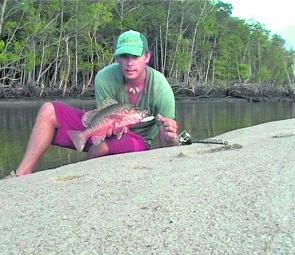
The first hour of the run-in tide produces result, especially on feisty jacks.
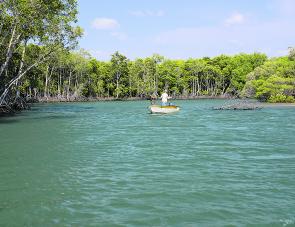
Look for structure near creek mouths for congregating fish.
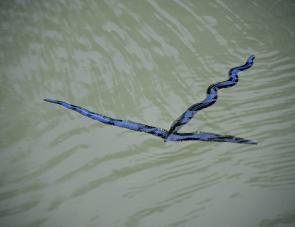
Hatches, such as these mangrove worms, were found in December with fish actively feeding on them.


